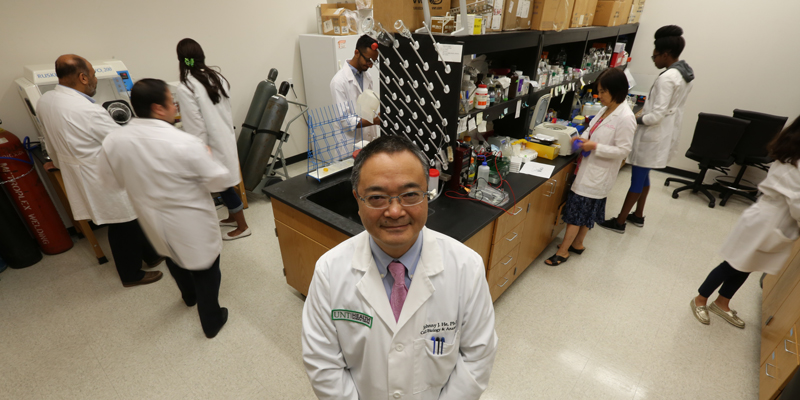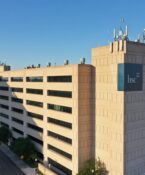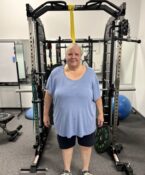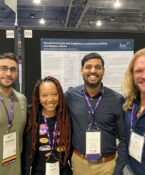Creating a more diverse research community
By Jan Jarvis

Students from underrepresented backgrounds could soon be getting a big boost from a training program aimed at increasing diversity at UNT Health Science Center – and ultimately the biomedical workforce.
A $1.4 million grant from the National Institute of General Medical Sciences will fund stipends and tuition for students who are selected for the program. The goal of the Initiative for Maximizing Student Development Program is to increase the number of students from underrepresented groups who complete PhDs in institutions with research-intensive environments.
While the training program is a great opportunity for students to continue their education, it also benefits UNT Health Science Center by raising the school’s profile as an institution dedicated to diversity, said Johnny He, PhD, Regents Professor and Interim Dean, Graduate School of Biomedical Sciences.
“We are already well recognized for our efforts and accomplishment in diversity,”
he said. “This will make our diversity training efforts really stand out.”
The program, which begins this month, will be used as an incentive for recruiting new students from around the country. The funding covers a total of 24 students.
“Most of our students are from Texas,” He said. “But this will extend our reach to places beyond the state.”
A committee will select students for the training program, which covers their education for up to five years. The goal is to select students who reflect underrepresented populations in Texas, where 39 percent of residents are Hispanic and 12 percent are Black.
Accountability is built into the training program. The NIGMS is monitoring each student’s training and will continue following them after they graduate.
Monitoring student outcomes and where they go to pursue their careers is important because the overall goal of the program is to increase diversity in the workforce, Dr. He said.
“We want to make sure that when they finish their training here the students go on to someplace great,” he said.
The training program pays students a $28,400 stipend in addition to covering their tuition. It essentially pays for the student to work for a faculty member, typically doing research in their lab.
“That takes the pressure off the faculty member because it gives them a student to work for them for free,” Dr. He said. “I believe it will be competitive for the faculty members to have a student work for them.”
The training program continues a long-standing effort to increase diversity at UNTHSC. Jamboor K. Vishwanatha, PhD, and Harlan Jones, PhD, both lead nationally recognized diversity programs at UNTHSC and have served as mentors to encourage individuals from underrepresented groups to pursue careers in biomedical sciences, Dr. He said.
UNTHSC continues to take a lead role in educating students to fill the demand for researchers from underserved backgrounds. Nationally the number of faculty members from underrepresented groups in the biomedical sciences has remained the same for 30 years.
“A diverse workforce comes up with better solutions,” Dr. He said. “The outcomes are much better when you have a diverse biomedical workforce than with a limited one.”





Social media